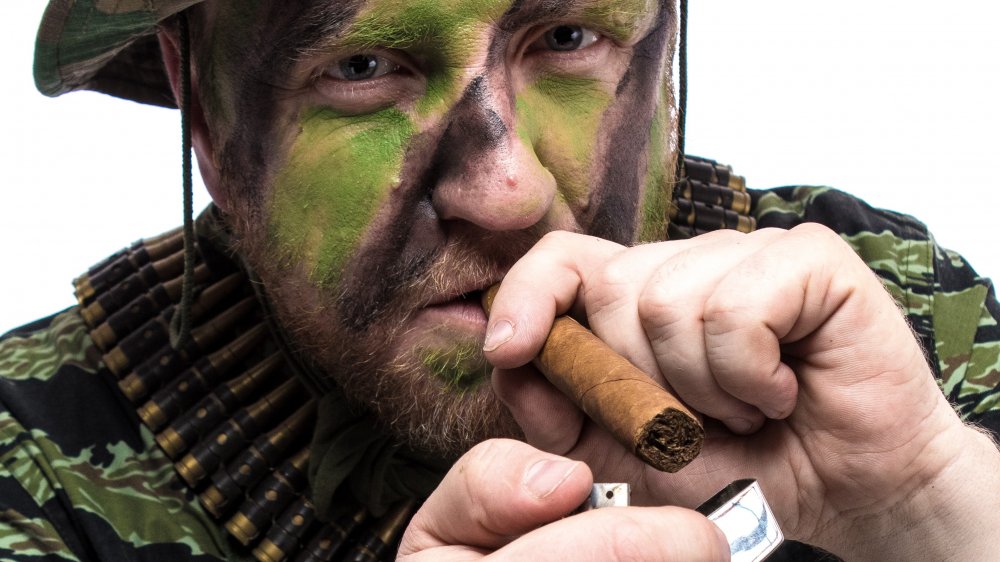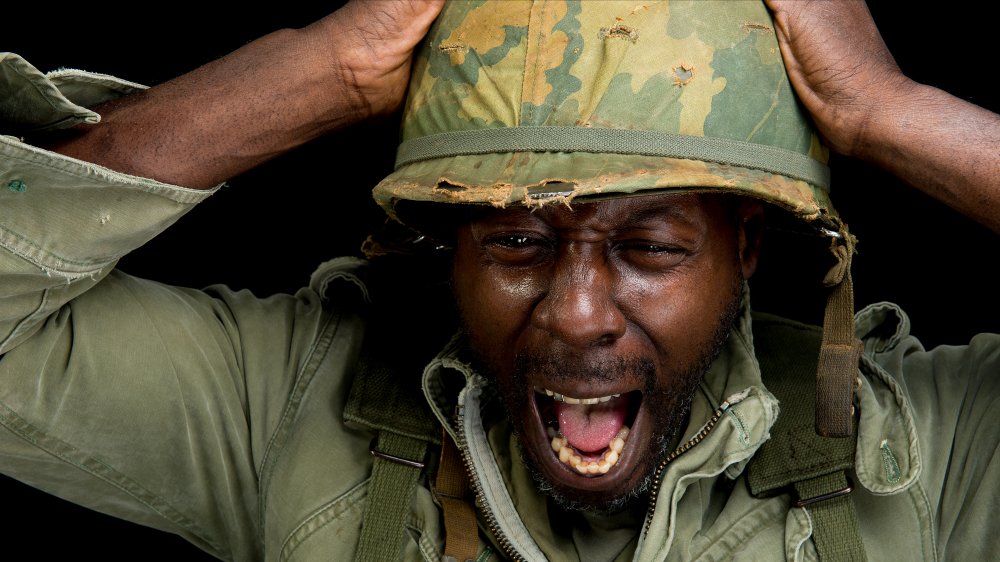The Truth About The Secret Drug Use During The Vietnam War
As documented by the U.S. State Department Office of the Historian, during a 1965 meeting at the White House, President Lyndon Johnson voiced "serious concerns" about whether westerners stood a chance, "in the absence of intelligence," of winning the Vietnam War. Was sending American troops to fight "in jungle-rice paddies" ultimately a fool's errand? Deputy Secretary of State George Ball offered a frank and sobering assessment: "I think we have all underestimated the seriousness of this situation. Like giving cobalt treatment to a terminal cancer case. I think a long protracted war will disclose our weakness, not our strength."
Unfortunately, Ball's words proved prophetic. The cancerous conflict metastasized and dragged on for another ten years. As both morale and morality waned, troops committed unthinkable atrocities, slaughtering civilians and even wearing the ears of their mutilated victims as necklaces. POWs were tortured horribly, hung from meat hooks, and kept in coffin-like "tiger cages." But in a sense, everyone in Vietnam was a prisoner of the war. Many G.I.s, desperate to make a mental jailbreak, self-medicated with narcotics, according to History.
Overdosing on war
In a sense, the U.S. fought two failed wars in Vietnam: The immediate conflict, and the burgeoning war on drugs. Declared by President "Tricky Dick" Nixon in 1971, the war on drugs was largely waged in response to rampant drug abuse by U.S. soldiers in the Vietnam War, according to the Guardian. Per History, a 1971 assessment by the Defense Department found that "51 percent of the armed forces had smoked marijuana, 31 percent had used psychedelics, such as LSD, mescaline and psilocybin mushrooms, and an additional 28 percent had taken hard drugs, such as cocaine and heroin."
While drug use wasn't unique to the Vietnam War, it occurred on an unprecedented level, says political science professor Lukasz Kamienski. And it wasn't just coming from illicit sources. The U.S. military administered steroid injections to soldiers sent on "special missions." The Defense Department doled out sedatives and anti-psychotic medications to alleviate anxiety and prevent nervous breakdowns. Even so, Nixon declared narcotics "public enemy number one." However, the war was its own worst enemy.
A massive crackdown on marijuana simply prompted troops to use heroin. By 1973, up to 20 percent of troops regularly used heroin. For some U.S. politicians, narcotics also became the scapegoat for the military and moral failings. One Democratic Congressman even blamed drugs for the My Lai Massacre. But the military uncovered very little evidence that addiction hindered troops' ability to fight. Perhaps the soldiers had overdosed on war itself.

